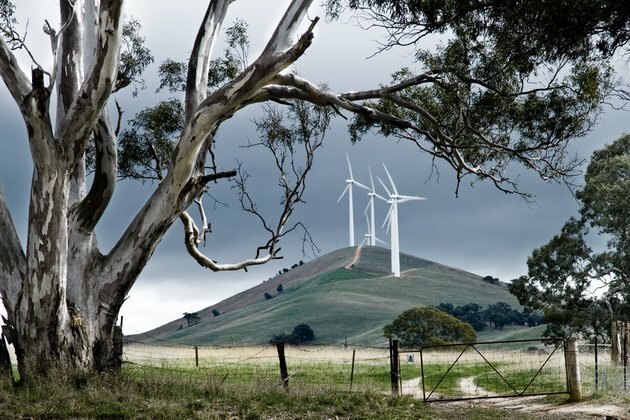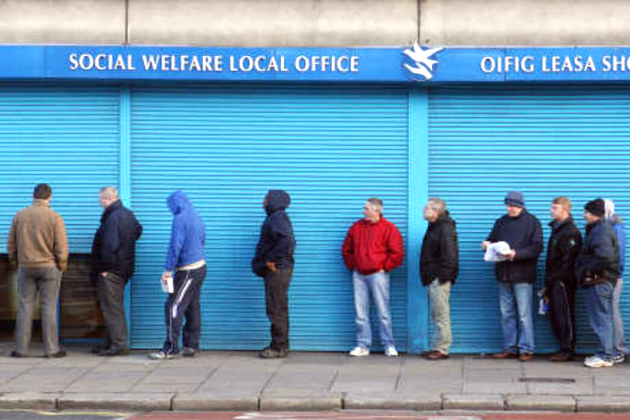The UK has a national climate change act ?why don't we?
The Conversation
16 May 2019, 07:51 GMT+10

No matter who wins the upcoming federal election, both the ALP and LNP are committed to remaining in the Paris Climate Agreement.
This means every five years Australia is expected to submit progressively stronger targets to reduce greenhouse gas emissions, and report on progress. And by 2020, Australia is expected to submit a long-term emissions reduction strategy showing how to get to net zero emissions.
Regardless of what policy mix is chosen to achieve this, the process of hitting the Paris targets is now a permanent feature of economy-wide decision-making, one that will need credible ongoing support from government and businesses. Policy uncertainty, and a lack of national framework, has reduced investment confidence.
The UK has shown how national climate change legislation can guide institutional action, and not only dramatically cut emissions, but also promote economic growth.
Victoria rolled out similar legislation in 2017, one of the first pieces of legislation in the world to be modelled on the Paris Agreement.
But Australia lacks a national version of Victoria's or UK's legislation.
We have national targets, but not yet ongoing systems embedded in departments. These systems would include measures to ensure continuous target-setting every five years (as used in other jurisdictions) with guidelines and progress reporting obligations. A lack of national legislation means the community and businesses lack transparency about Australia's long-term direction, pace and progress.
How national climate change legislation would work
A national Climate Change Act would reduce recognise climate change was not taken into account when many current laws were developed, and reduce policy instability around Australian meeting our Paris obligations by:
providing a role for governments and courts to flesh out and stabilise the low carbon transition
guiding an emissions reductions path that looks ten years ahead, across all sectors of the economy, and that can be ratcheted up if policies fail to meet their targets
ensuring transparent reporting of emissions and progress towards meeting interim Paris Agreement targets
allocating responsibilities across government for reporting and climate-conscious planning
signalling to business, communities and government agencies about emerging opportunities in a low carbon economy.
How Victoria did it
In 2017, the Victorian Labor government rolled out state-wide climate legislation, the Victorian Climate Change Act.
This legislation recognises how addressing climate change needs a whole-of-government approach, extending obligations to each state government portfolio.
And it has already catalysed climate change reporting and planning activity across government. An independent committee has been tasked with advising on the first ten years of emissions budgets.
Government departments are preparing adaptation plans for each sector, reviewing operational guidelines and establishing regular reporting of emissions in sectors and their future plans.
The UK's success story
The UK passed its Climate Change Act in 2008 with a near unanimous vote. It has guided government decisions on national energy and industrial policy ever since.
The Act contains a process for setting economy-wide, multi-year targets, generating a clear, but flexible path towards its long-term objective - an 80% reduction in national greenhouse gas emissions by 2050. It's not explicit about how targets are to be met and successive governments have been free to choose their own mitigation policies.
What has resulted is a clear shift away from the politics of the past where climate change action was traded off against other government goals.
Ever since the Act passed, subsequent UK parliaments have created management and efficiency initiatives, a minimum price on carbon (called carbon price floors), renewable energy targets, competitive reverse auction schemes and capacity markets.
Combined, these policies promote a competitive, sustainable, low carbon energy supply, along with economic growth and increased national energy security.
And the results have been extraordinary: emissions in the UK have fallen dramatically since 2008, with the UK's carbon dioxide emissions now below 1860s levels.
National transparency would improve the market
With a clear legislative process with interim targets every five years, a Climate Change Act for Australia would provide businesses and the public with a certainty around the pace of climate change action that reaches beyond the political cycles.
Governments would still have the freedom to choose interim targets and how to deliver them, but the legislation would create transparency around our obligations.
It would also ensure that a transition to a low-carbon future does not risk financial stability.
Regulatory bodies, such as the Australian Prudential Regulation Authority, the Bank of England, and the Financial Stability Board, recognise the necessity for climate change legislation to create confidence in markets. They are already applying pressure to local and international financial markets to improve disclosure of climate risk.
Finally, national legislation would ensure the market and the public are kept up-to-date about progress and future pathways, and how they can be involved in the process along the way. This includes investing in Australia's potential as a new lower-carbon powerhouse.
Let's agree what is agreed, and move on
Australian politicians don't often agree on climate change action, but the major parties do agree on Australia staying in the Paris Agreement.
A national Climate Change Act for Australia would embody this commitment, aligning us with the international process in a policy-flexible framework. Agreement on such an Act would show the Australian public that each party is serious about tackling climate change, providing a stable platform for the next parliament.
 Share
Share
 Tweet
Tweet
 Share
Share
 Flip
Flip
 Email
Email
Watch latest videos
Subscribe and Follow
Get a daily dose of Irish Sun news through our daily email, its complimentary and keeps you fully up to date with world and business news as well.
News RELEASES
Publish news of your business, community or sports group, personnel appointments, major event and more by submitting a news release to Irish Sun.
More InformationInternational
SectionDelta crash-landing probe finds dangerous descent before touchdown
TORONTO, Canada: An initial investigation into last month's dramatic Delta Air Lines crash-landing in Toronto has revealed that the...
New York court blocks law allowing over 800,000 non-citizens to vote
NEW YORK CITY, New York: New York State's highest court has struck down a law this week that would have allowed over 800,000 legal...
40 times more people killed in Gaza than in the 7 October attack
The death toll in Gaza on the weekend has passed 50,000, local health authorities have reported. What started the carnage was the Hamas-led...
USDA pledges $100 million for bird flu research, vaccine development
WASHINGTON, D.C.: The U.S. Department of Agriculture (USDA) has announced plans to invest up to US$100 million in research to develop...
US HHS orders removal of gun violence public health advisory
WASHINGTON, D.C.: The U.S. Department of Health and Human Services (HHS) has removed a 2024 advisory from its website that called gun...
Regulatory hurdles may leave US behind China in autonomous tech
WASHINGTON, D.C.: Industry leaders are pushing the Trump administration to clear regulatory obstacles slowing the rollout of self-driving...
Europe
SectionWelfare cuts in Ireland hit jobseekers under stricter work mandates
DUBLIN, Ireland: In 2024, thousands of jobseekers saw their welfare payments reduced for not fully engaging with employment support...
Finance minister warns trade war could hurt Ireland’s economy
DUBLIN, Ireland: Ireland's Finance Minister Paschal Donohoe has warned that an escalating trade war between the European Union and...
Ireland climbs to 15th in World Happiness rankings
DUBLIN, Ireland: Ireland has risen two places to become the 15th happiest country in the world, according to the World Happiness Report...
EU to cut steel import quotas by 15% to counter US tariff fallout
BRUSSELS, Belgium: The European Union is set to tighten steel import quotas starting in April, reducing inflows by 15 percent to prevent...
Ireland’s property prices surge 8.1% in a year, CSO reports
DUBLIN, Ireland: Ireland's property prices continued their upward trend, rising by 8.1 percent in the 12 months leading to January...
Zelensky announces push to enlist younger men
Kiev is broadening its military recruitment as the US nudges it into a truce with Russia Ukraine must enlist more young men into...














